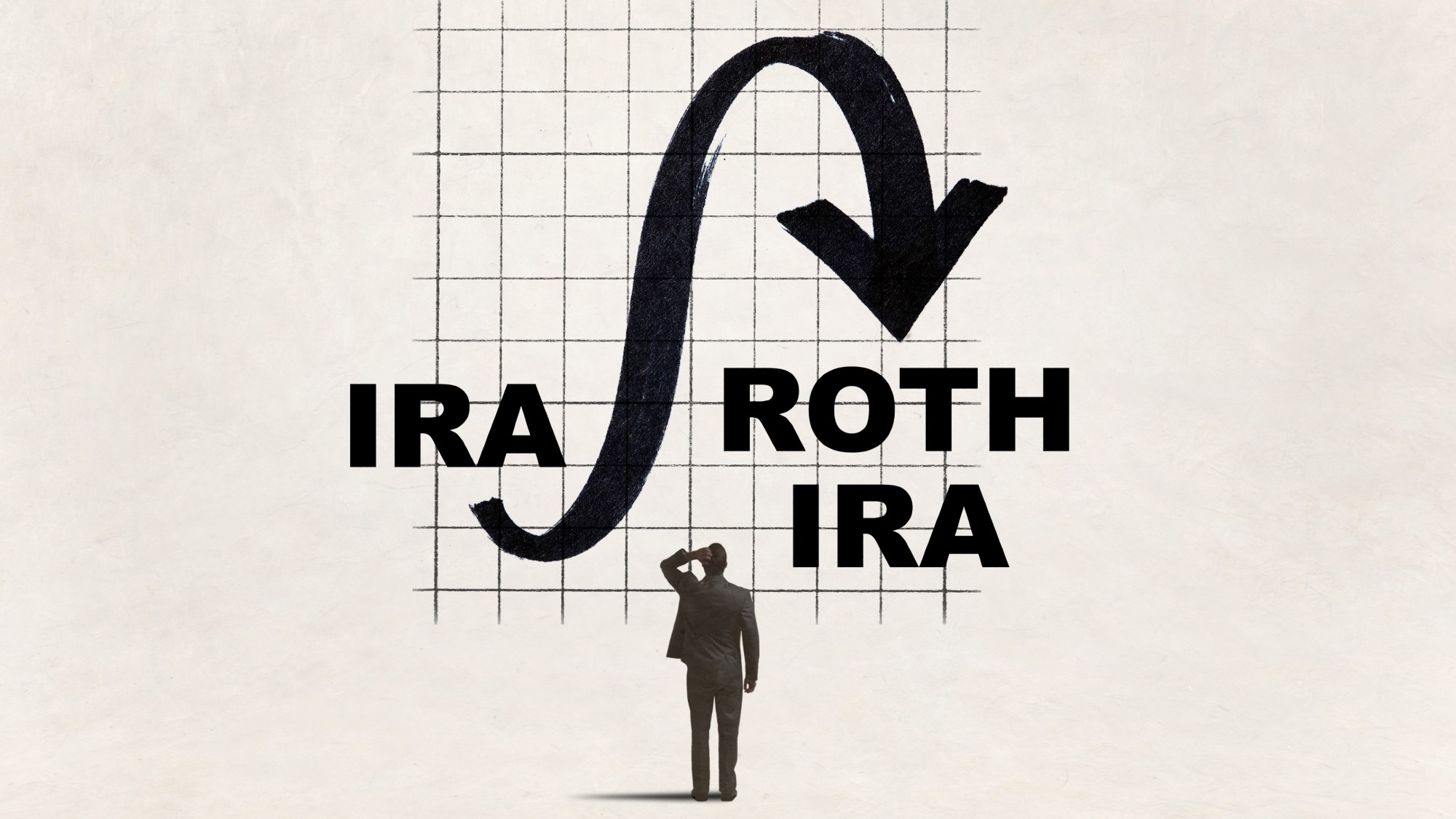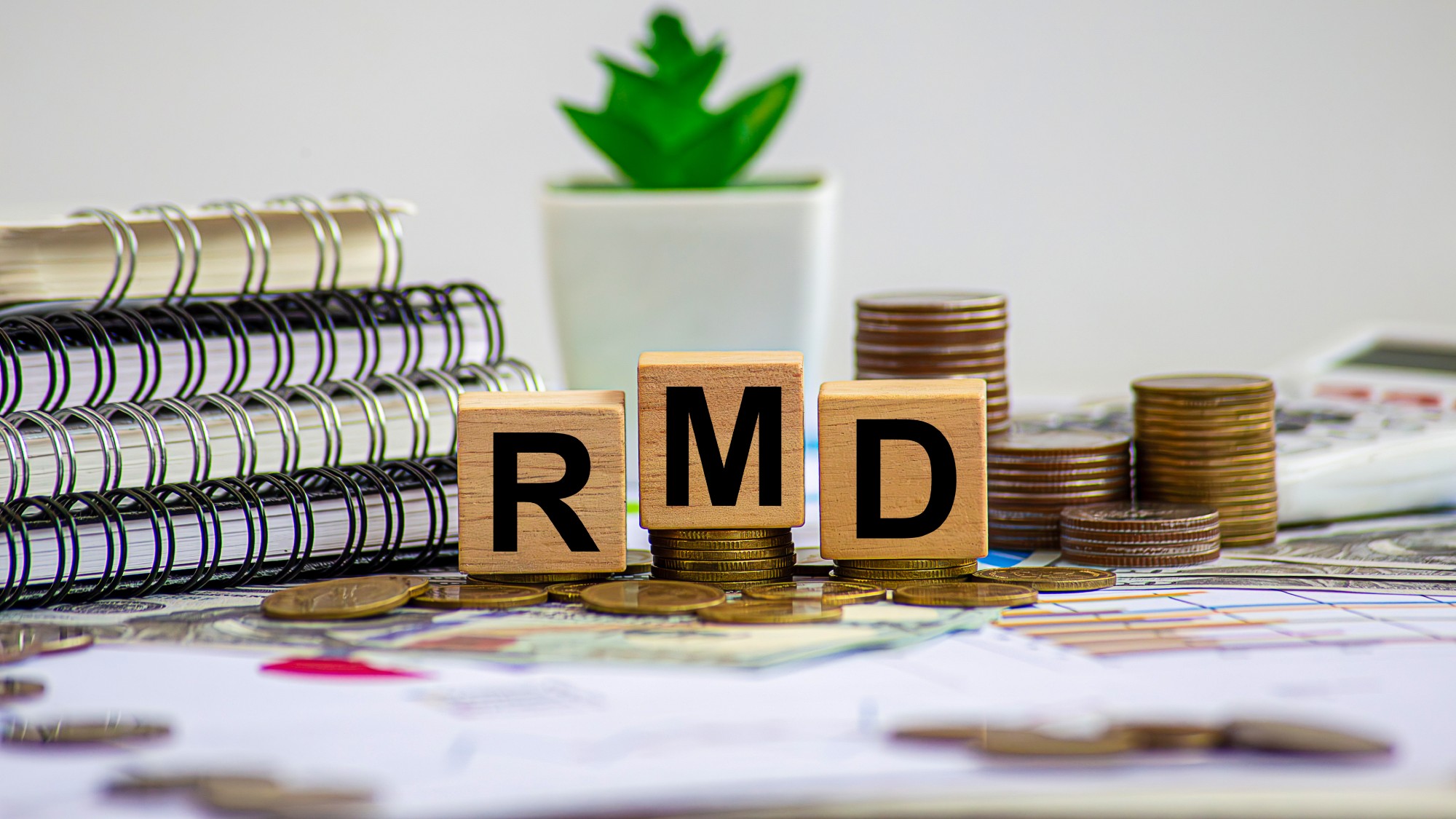How to prepare your pension for a longer life
Will your retirement savings support you to age 100?

A free daily email with the biggest news stories of the day – and the best features from TheWeek.com
You are now subscribed
Your newsletter sign-up was successful
People are living longer due to improvements in lifestyles and healthcare, but this longevity brings new challenges when it comes to financial planning.
Office for National Statistics figures show that 15,330 people reached the age of 100 in England and Wales in 2024. Boys born in 2023 can now expect to live on average to the age of 86.7 and girls to 90.
But the prospect of living to 90 has “massive implications for our own pension saving”, said Yahoo! Finance. Many people retire at 65 but “do you have the means to generate an income that could last 35 years or more?”
The Week
Escape your echo chamber. Get the facts behind the news, plus analysis from multiple perspectives.

Sign up for The Week's Free Newsletters
From our morning news briefing to a weekly Good News Newsletter, get the best of The Week delivered directly to your inbox.
From our morning news briefing to a weekly Good News Newsletter, get the best of The Week delivered directly to your inbox.
Work out how much you need to retire
There is no “one-size-fits-all” retirement income, said Wesleyan, and the amount you need will depend on “your individual circumstances, desired lifestyle, expected outgoings and how long you might be retired”.
As a ballpark, figures from Pensions UK show it would cost £43,900 per year for a single person to have a “comfortable retirement”, which covers spending such as eating out, holidays and transport.
The Pensions UK data gives you a “better idea”, said Which?, of how much money you will need in retirement and the state pension and private pensions, as well as other assets, “are the building blocks of most people’s retirement income”.
The “next step” is working out how much you’ll need to save into your pension to get the income you want.
A free daily email with the biggest news stories of the day – and the best features from TheWeek.com
Figures from the consumer watchdog show a single person would need a pension pot worth as much as £609,270 for a comfortable retirement.
Start saving
Saving from as young an age as possible can make a “big difference”, said Rathbones. Start saving at the age of 25 and £1,608 per month could grow to £1 million at 65, the wealth manager said. But wait until 45 and you would need to save £3,659 per month to reach £1 million at 65.
Yahoo! Finance suggests increasing your contributions “every time you get a pay rise or new job” and says tracking down pensions from previous jobs could help “strengthen your position”.
Buy an annuity
The “surest way to make your pension last a lifetime” when you retire, said Tom Selby, director of public policy at AJ Bell, in MoneyWeek, is to purchase an inflation-protected annuity. This provides a guaranteed income for life based on the value of your pension, age and lifestyle.
The risk is that “your pension savings are committed to this product and you can’t change your mind”.
Opt for income drawdown
Alternatively, you can stay invested and make withdrawals from your pension using drawdown.
Investment performance isn’t guaranteed, though, said MoneyHelper, and “if you take out too much money too soon, you could run out of money”.
Many retirees follow the 4% withdrawal rule. This suggests taking 4% from your pension and adjusting for inflation at 2% each year. This “could mean your savings last 30 years or more”, said PensionBee, and is seen as a “sustainable withdrawal method” because your spending is increasing based on inflation, not by how your investments have performed.
You can take 25% of your pension tax-free, but any other income you take from your pension is “potentially taxable”, said Fidelity.
However, you don’t need to spend “all your savings” on an annuity. You could instead keep some of your pension invested “and buy an annuity with the rest to cover your day-to-day costs”.
Marc Shoffman is an NCTJ-qualified award-winning freelance journalist, specialising in business, property and personal finance. He has a BA in multimedia journalism from Bournemouth University and a master’s in financial journalism from City University, London. His career began at FT Business trade publication Financial Adviser, during the 2008 banking crash. In 2013, he moved to MailOnline’s personal finance section This is Money, where he covered topics ranging from mortgages and pensions to investments and even a bit of Bitcoin. Since going freelance in 2016, his work has appeared in MoneyWeek, The Times, The Mail on Sunday and on the i news site.
-
 Local elections 2026: where are they and who is expected to win?
Local elections 2026: where are they and who is expected to win?The Explainer Labour is braced for heavy losses and U-turn on postponing some council elections hasn’t helped the party’s prospects
-
 6 of the world’s most accessible destinations
6 of the world’s most accessible destinationsThe Week Recommends Experience all of Berlin, Singapore and Sydney
-
 How the FCC’s ‘equal time’ rule works
How the FCC’s ‘equal time’ rule worksIn the Spotlight The law is at the heart of the Colbert-CBS conflict
-
 The pros and cons of tapping your 401(k) for a down payment
The pros and cons of tapping your 401(k) for a down paymentpros and cons Does it make good financial sense to raid your retirement for a home purchase?
-
 Six ways to boost your finances in 2026
Six ways to boost your finances in 2026The Explainer It’s not too late to make a new year’s resolution to finally get organised money-wise
-
 How to save more for retirement next year
How to save more for retirement next yearthe explainer Secure yourself a suitable nest egg
-
 What are the pros and cons of a Roth conversion for retirement?
What are the pros and cons of a Roth conversion for retirement?Pros and Cons By converting a traditional IRA to a Roth IRA, retirees can skip paying taxes on their withdrawals
-
 What’s the best way to use your year-end bonus?
What’s the best way to use your year-end bonus?the explainer Pay down debt, add it to an emergency fund or put it toward retirement
-
 How can you tell if you are ready to retire?
How can you tell if you are ready to retire?the explainer All the preparation you need to sail off into your golden years
-
 3 required minimum distribution tax mistakes to avoid
3 required minimum distribution tax mistakes to avoidThe Explainer Missteps in making withdrawals from tax-advantaged retirement accounts can cost you big
-
 The FIRE movement catches on as people want to retire early
The FIRE movement catches on as people want to retire earlyIn the spotlight Many are taking steps to leave the workforce sooner than usual